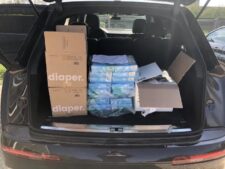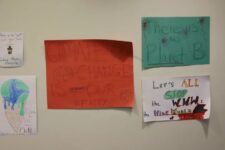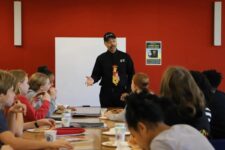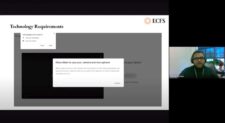Scattered across Laurie Hornik’s classroom are Post-it Notes adorning various items and spaces. A note stuck to the window reads, “Lens to the Outside World.” A bookshelf is labeled, “The Library of Truth.” The window looking out into the hallway — where someone could peek out and see students arriving late to class — has a small note tucked up top naming it, “The Late Watcher.”
These notes are the work of 7th Graders at the Ethical Culture Fieldston School who are learning to reimagine their realities as fantasy and to better understand their own lived experiences in the process.
Students spend the first six weeks of their 7th Grade English classes reading excerpts from fantasy novels and short stories, such as Salmon Rushdie’s “Haroun and the Sea of Stories” and Ursula K. Le Guin’s “A Wizard of Earthsea”.
They examine how the authors use imagery to “fantasticalize” people, places, and objects. Labeling the classroom with invented names is one way students learn how to view ordinary items as wondrous tools of possibility, just as fantasy authors build their fictional worlds with their own unique taxonomy.
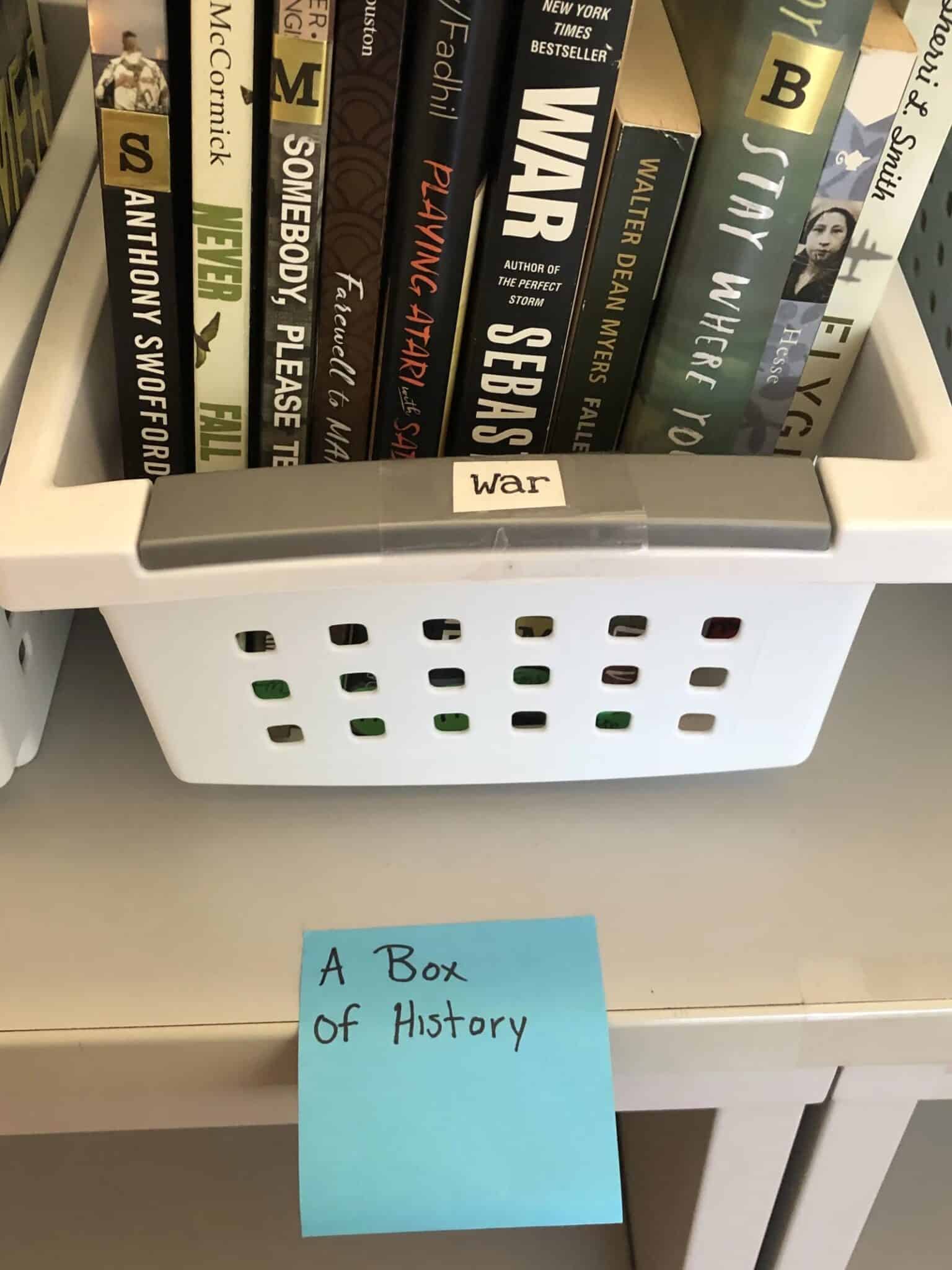
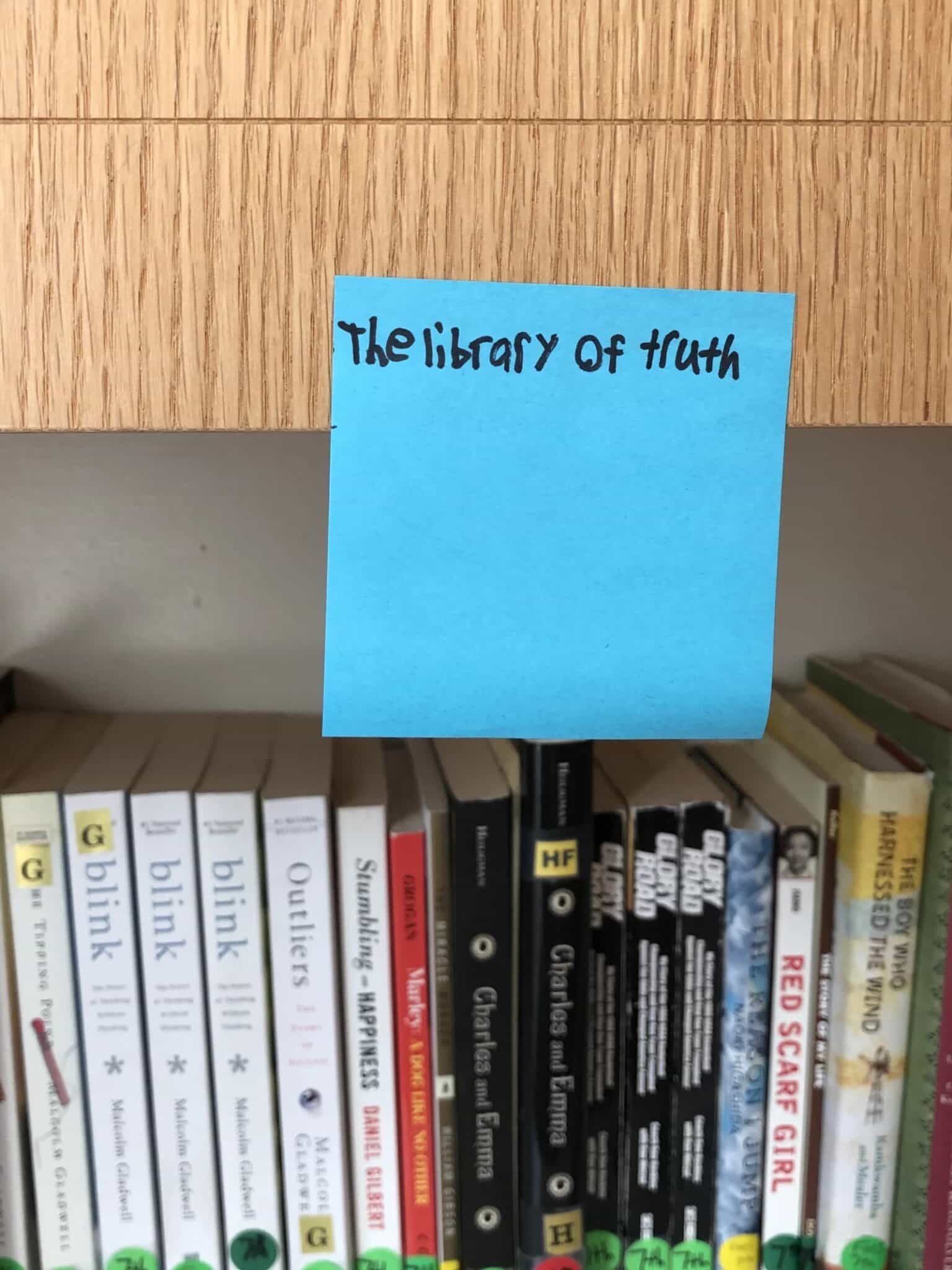
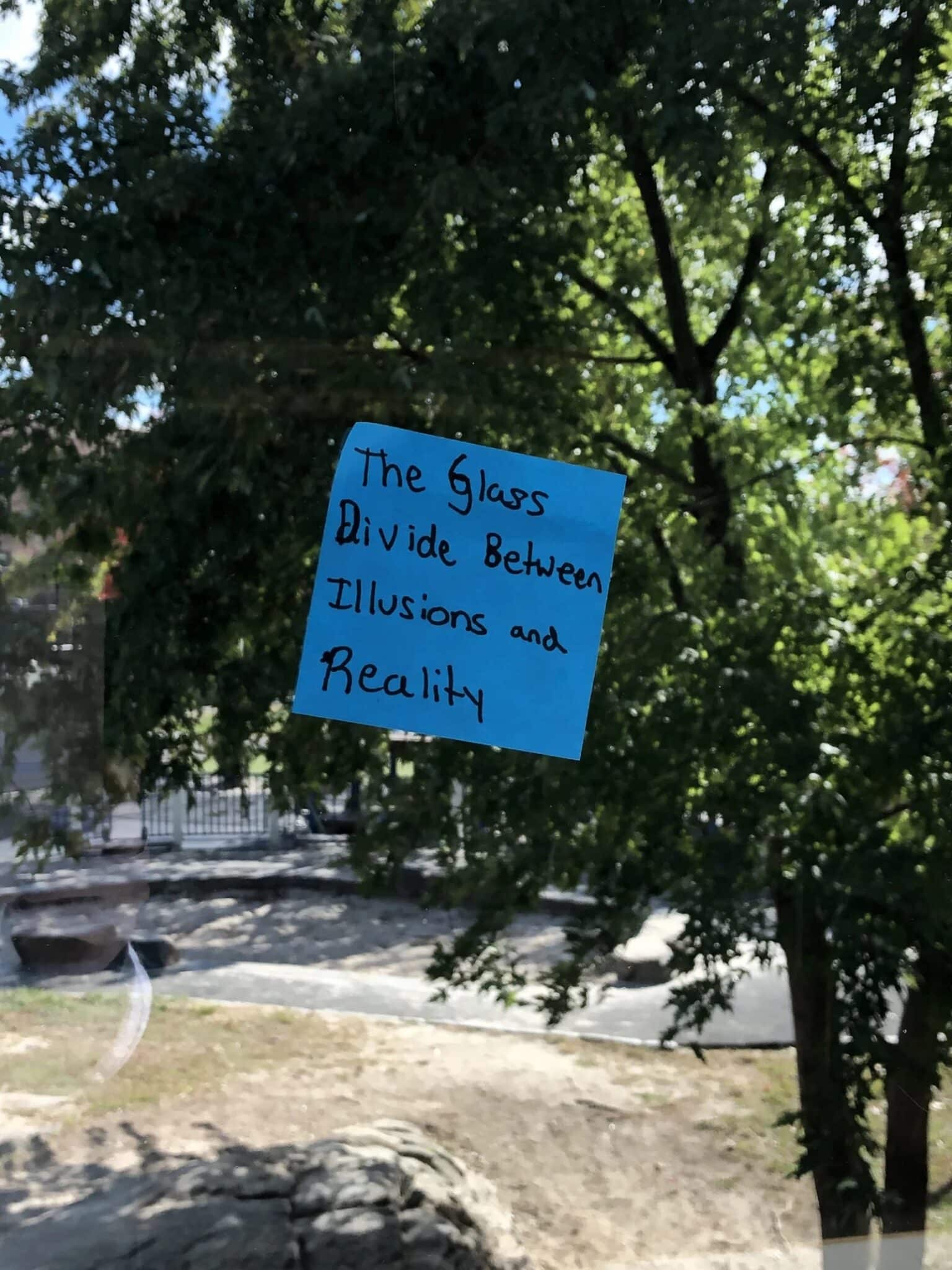
In class, students settle in and talk dies down. Sitting at the front of the classroom is an orange tote labeled, “Bag of Magical Objects.” Today, students will pull an item from the bag and decide what otherworldly capability it may possess. An everyday classroom tool — such as a stapler — becomes imbued with the power to mend friendships. A water bottle carries the gift of never-ending hydration.
These activities offer more than just an exercise in creativity.
“We’re also sneaking grammar in, because we can talk about the power of capital letters,” says Hornik, Teacher and Chair of the Fieldston Middle School English Department. “Why does the ‘Outlet of Power’ sound so different from ‘the power outlet’? Students have to consider the impact of language.”
When it comes time for the 7th Graders to write their own stories, the prompt is simple: write about a real-life experience when you learned to do something, or learned something about yourself or the world. Students fantasticalize their stories, keeping the central truth or lesson intact.
“What we want them to see is that you can make up fantasy that has a kernel of truth. Fantasy is grounded in some kind of truth — in fact, it magnifies it,” explains Hornik.
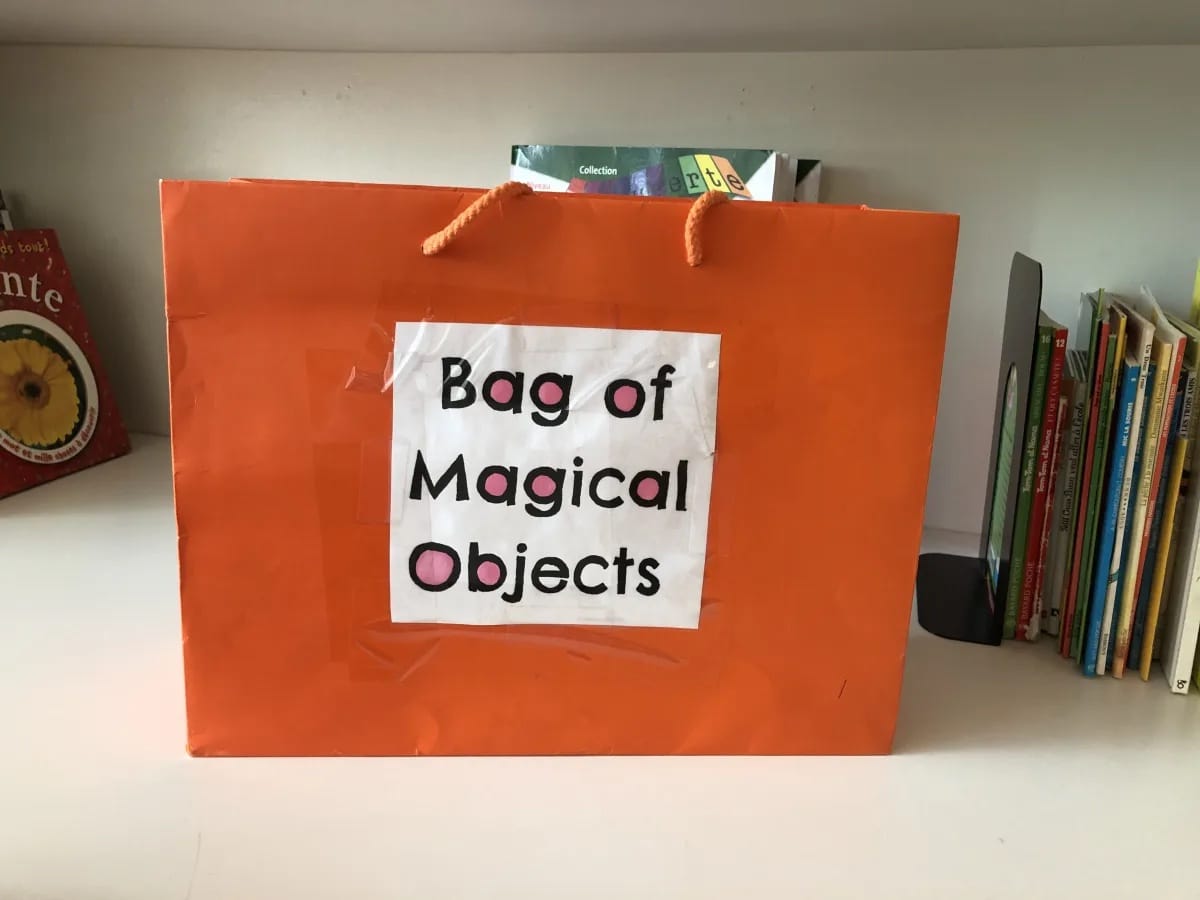
These stories also serve as an opportunity for self-reflection with critical distance, says Brad Fraver, 7th Grade English Teacher. “It’s a way for them to write about themselves in an impersonal way. Students might feel more comfortable exploring themes and conflicts through writing and reading fiction, and what they choose to write about is often revelatory.”
Recently, a student crafted a scene in which each strand of her hair holds the most sensitive nerves in her body, making a haircut a violently painful experience. Without stating so explicitly, the story illuminates the anxiety of getting a haircut — the self-consciousness, the fear of looking a certain way — especially in the socially formative years of Middle School.
Once the students finish their stories, the class engages in a peer review process. Students read each other’s work, then share their experience as a reader, rather than providing critical notes. They write comments that begin, I notice, I wonder, I heard. The process encourages students to uplift one another as writers, and to share what they learned from reading their peers’ writing.
The fantasy writer Lloyd Alexander, whose work continues to inform students today, once said, “Fantasy is hardly an escape from reality. It’s a way of understanding it.” 7th Graders at Fieldston Middle School engage with this idea by writing their lived experiences into imagined worlds. Students illuminate truth with the light of fiction, and, by doing so, they learn the value of creativity, the thrill of imagination, and the enduring power of writing.
